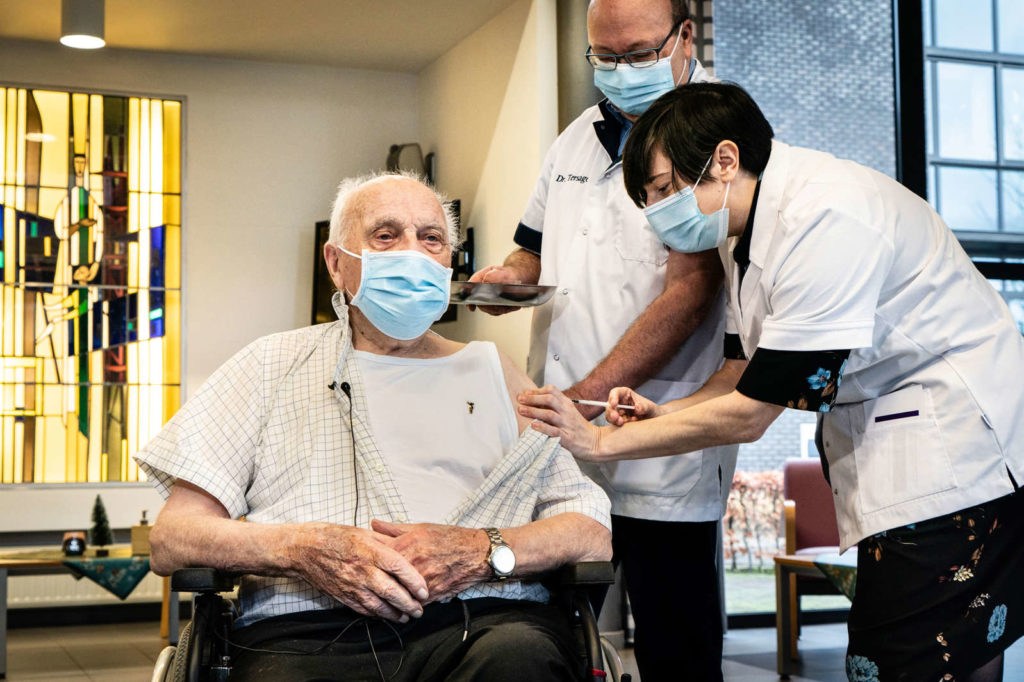Exactly one year ago today (28 December), the first coronavirus vaccine was administered in Belgium, kicking off a vaccination campaign that now sees 76% of the population fully vaccinated.
Less than one year after the coronavirus sparked a pandemic that disrupted lives around the world, the first coronavirus vaccines became available in Belgium and were first given to people in residential care centres.
This included 96-year-old Jos Hermans, who was a resident of a care centre in Puurs-Sint-Amands near the Pfizer production facility in Puurs, Antwerp. On 28 December 2020, Hermans became the first Belgian to receive a vaccine dose.
“I feel 30 years younger now,” Hermans told local media at the time. "Everyone needs to be vaccinated. When everyone has been given a shot, we are freer again, and our children and grandchildren can come and visit."
Flanders, where the first dose was administered, has the highest vaccination coverage rate in Belgium, with 81% of the total population fully protected, followed by Wallonia (72%) and Brussels (59%).
Related News
- Covid-19 infections, hospitalisations and deaths continue to decline
- Belgian man gets vaccinated eight times at the request of antivaxxers
- Antwerp wants to vaccinate children in the Zoo
Flemish Health Minister Wouter Beke celebrated this memorable date but warned that there is still a long road ahead, despite the successful vaccination rollout and the high coverage rate.
"I am proud of what we have all achieved but I still have mixed feelings," he wrote in a statement. "Even with a vaccination rate of 93% of people in Flanders over the age of 12, the Intensive Care Units in our hospitals are inundated with sick patients who have underlying disorders or who have not been vaccinated."
He stressed that, in light of the current situation, the call for mandatory vaccination is more pertinent than ever to reduce the virus circulation, for life to return back to normal, and for people whose care has been postponed for months to receive the treatment they need.
Situation far from ideal, but improving
One year after the first dose was administered in Belgium and in light of the pandemic continuing to "hold society in its grip," the country is now fully focused on the booster dose campaign, which was accelerated in response to the rapidly circulating Omicron variant. So far, 36% of the total population has received an additional dose.
Beke stressed that the difference between the date this year and last year, especially when it comes to the structural rollout of the vaccines, is like "night and day."
"In December last year, we presented a vaccination plan, even though there were no vaccines yet. In the first weeks of January, we had to deal with irregular supplies. Initially, there was talk of 'vaccination centres opening 24/7', while there were not enough vaccines to inject one full afternoon a week."

